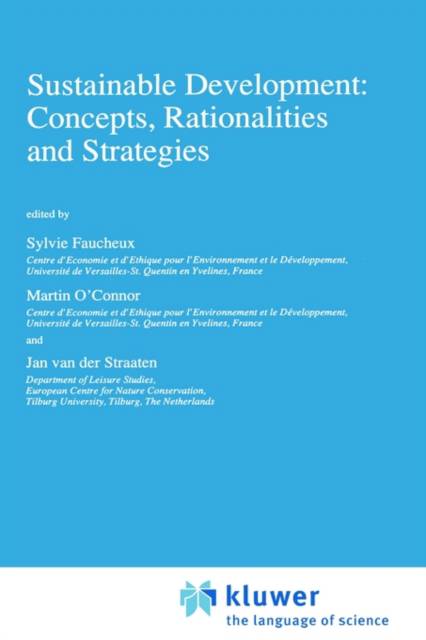
- Afhalen na 1 uur in een winkel met voorraad
- Gratis thuislevering in België vanaf € 30
- Ruim aanbod met 7 miljoen producten
- Afhalen na 1 uur in een winkel met voorraad
- Gratis thuislevering in België vanaf € 30
- Ruim aanbod met 7 miljoen producten
Zoeken
Sustainable Development: Concepts, Rationalities and Strategies
€ 251,45
+ 502 punten
Omschrijving
3 decision support techniques that do not depend exclusively on market incentives and monetary valuation. The World Conservation Strategy published by the mCN (1980) recognised the full dimensions of these problems, and introduced the concept of sustainable development, placing the emphasis on the exploitation of natural systems and the use of biological natural resources within limits so that the availability of these resources for use by future generations would not be jeopardised by the current use of them. At this time, the imposition of quotas and the definition of critical loads and environmental standards were suggested as the sorts of instruments necessary to cope with the problems of limited availability of environmental resources. Although the mCN publication did not obtain a high international profile, the idea of policy norms to respect critical loads has become quite widely accepted in the environmental policymaking of Western countries. This has often put the policy agencies in difficult situations. Polluting industries are inclined to argue that the critical loads are defined too restrictively. The complexity and time lags of ecological effects makes it hard to say exactly what constitutes a critical load beyond which there will be irreversible damage, and lobbying interests can play on these uncertainties to try and weaken the environmental standards. In addition, polluting industries can use the argument of negative impacts on "the economy" (particularly as regards employment and export prospects) to blackmail governments, regulatory agencies and the general public.
Specificaties
Betrokkenen
- Uitgeverij:
Inhoud
- Aantal bladzijden:
- 326
- Taal:
- Engels
- Reeks:
- Reeksnummer:
- nr. 13
Eigenschappen
- Productcode (EAN):
- 9780792348849
- Verschijningsdatum:
- 31/12/1997
- Uitvoering:
- Hardcover
- Formaat:
- Genaaid
- Afmetingen:
- 156 mm x 234 mm
- Gewicht:
- 644 g

Alleen bij Standaard Boekhandel
+ 502 punten op je klantenkaart van Standaard Boekhandel
Beoordelingen
We publiceren alleen reviews die voldoen aan de voorwaarden voor reviews. Bekijk onze voorwaarden voor reviews.










